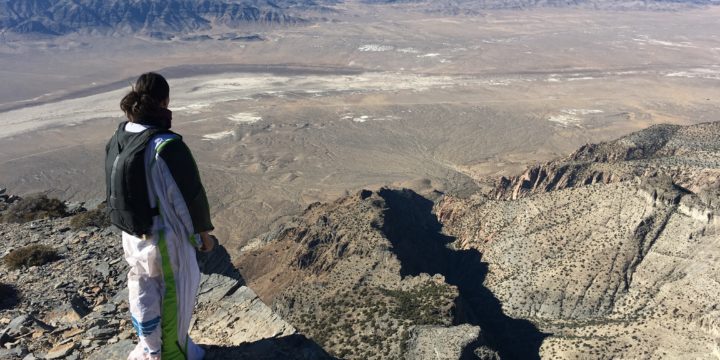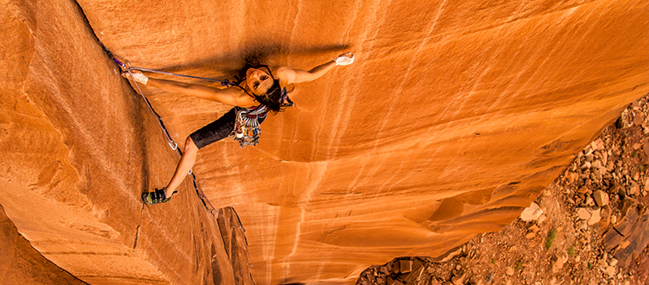
Fear as a Positive Variable
- December 2016
- Hi Steph
Hi Steph
I’m doing postgraduate research for a Masters in Psychology at the moment. My dissertation is focussed on how fear influences risk taking behaviour in BASE jumping. I’m particularly interested in how fear can be used positively within the realms of extreme sport. I’m an active climber, kayaker, wingsuit skydiver and ex-BASE jumper (my wife hates it, which is a pity), so I’ve had some exposure to the meaning and usefulness of fear within these domains. I would love to get an insight into your opinion on this subject…how you use fear as a positive variable when soloing and BASE jumping.
Thanks
Anton
P.s. Learning to Flywas absolutely marvellous, I couldn’t put it down and it kept me captivated all the way through!
Hi Anton,
I think this is a really interesting field of research, and I’ve been glad to see some variations recently on the more stereotypical attitudes toward fear, risk and high commitment activities.
We always talk about reducing risk, and often it seems like there is a fantasy of eliminating risk entirely. I sometimes substitute the word “change” for the word risk; I think in many ways they are equivalent. But change carries a much more positive connotation in our culture than risk does. Still, change does create a lot of fear and many would like to avoid it. At the same time, change can represent a desirable state, if we don’t like where we are right now. Change and risk are part of life, and although they can be scary, life would not exist without them because things would be in a static state, which is the opposite of being alive. So really we ought to love change and risk and see them as positive. But the inclination toward fear is so powerful that it tends to consume everything else and cause us to react very dramatically. Fearlessness isn’t something to aspire toward though. I often see people entering into high consequence situations without understanding the potential risks or even how to assess them. Generally when people aren’t feeling fear at all it’s because they are ignorant of danger. We need fear, but we also need to understand how to avoid being controlled by it.
Fear is a crucial partner in keeping us alive, but it can also act as a handicap or a decoy. With humans, the only way to get us to behave consistently is to play on emotions–reasonable discussion really doesn’t work with us reliably. So this is probably why fear operates on our most powerful emotion, because no matter what, everyone listens. I’ve noticed two conflicting responses to things that scare us, and they’re both a different manifestation of allowing our behavior to controlled by fear–we either want to get away and avoid them completely, or we find ourselves compelled to go toward and ideally past them.
When I first started climbing, I felt really frustrated at being stopped from performing well on climbs by powerful fear feelings, of climbing above my gear or taking falls. Fear sometimes stopped me from even trying something I found intimidating. So I saw fear as something to get past and to overcome. I worked on this, and over time I developed a new reflex–when I felt strong fear feelings, my first reaction became to keep going, to continue past those feelings. This helped me through situations that were scary but not truly dangerous. It got complicated though when I was putting myself in situations that had much greater consequences. I’d trained myself to keep going when I felt fear, rather than to step back. As a BASE jumper, you’ve seen the results of this approach many times–it pretty frequently leads to injury or death, and everyone else asking how that person could be so reckless.
Fear is a tricky element, and we can’t treat it the same way in every situation. For me the key difference is consequence. The biggest mistakes I’ve made have been in the times I let fear control me in high-consequence situations–causing me to either rush to get away from it, or to rush to get past it. In those times, I’ve gotten lucky and that’s why I’m still here and able to learn from them.
I do my best now to use fear as a signal, and this means I need to understand how different levels of fear feel. I need to be willing to feel uncomfortable, sometimes for very long periods of time. But I also need to be willing to walk away from any experience, no matter how much I’ve spent to get to it. I think extreme sports often appear to be about speed and adrenaline. For me at this time, they are about listening. I used to see fear as an annoying obstacle to dodge or vanquish. Now I see it as the most important bodyguard I have, but it demands the courage and the patience to listen to it.
Steph







